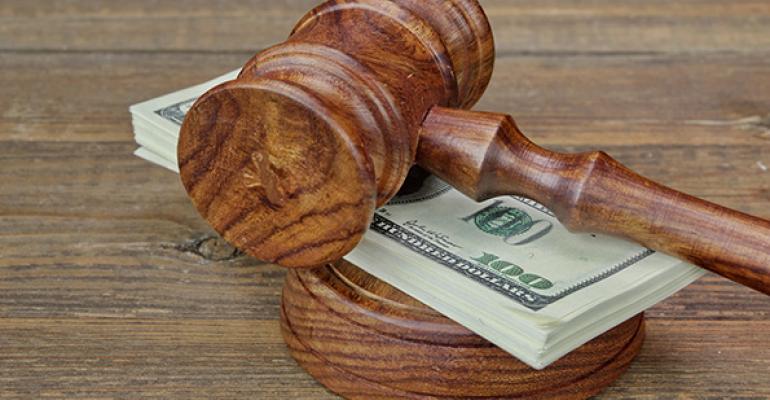In Estate of Hake v. United States,1 the U.S. District Court for the Middle District of Pennsylvania denied an estate’s motion requesting attorney’s fees and costs from the United States, despite the estate’s success in the underlying action, because the estate failed to satisfy the requirements for a prevailing party under the applicable statute. In the underlying action, the estate successfully sued for abatement and reimbursement of penalties assessed after the executors, the decedent’s two sons, failed to file the estate’s tax returns on time, based on incorrect advice of counsel.
Estate Seeks Attorney’s Fees
The estate was assessed a $197,868.26 late penalty and $17,202.44 in interest for its error. In an effort to obtain a refund of the amount paid, the executors exhausted all Internal Revenue Service administrative remedies, but without success. The executors filed a complaint on July 15, 2015, beginning the litigation, which was resolved in the estate’s favor. However, the estate incurred a financial cost of $52,849.40; consisting of $51,378 in attorney’s fees and costs of $1,471.40. The estate asked for repayment from the United States for attorney’s fees and costs, following the resolution of the underlying litigation. Internal Revenue Code Section 7430 governs awards of costs and fees in any action involving the United States that concerns tax, interest, or penalty refunds. In relevant part, IRC Section 7430 provides that:
"… the prevailing party may be awarded a judgment or a settlement for — (1) reasonable administrative costs incurred in connection with such administrative proceeding within the Internal Revenue Service, and (2) reasonable litigation costs incurred in connection with such court proceeding."2
By permitting limited financial recoveries against the government, Section 7430 represents a limited waiver of the government’s sovereign immunity. Noting this, the court invoked the canon of statutory construction that “the traditional principle that the government’s consent to be sued “must be ‘construed strictly in favor of the sovereign,’3 and not enlarge[d] … beyond what the language requires.”4 Adopting that analytical predisposition, the court noted that Section 7430 defines a “prevailing party” as: any party … (i) which … has substantially prevailed with respect to the amount in controversy, or ... the most significant issue or set of issues presented, and (ii) which meets the requirements of the 1st sentence of [28 U.S.C. Section] 2412(d)(1)(B)…5
Prevailing Party
Based on this, the court reasoned that a “prevailing party” in tax litigation must have: (1) “substantially prevailed” in the lawsuit; and (2) met the requirements of the first sentence of 28 U.S.C. Section 2412(d)(1)(B). The latter significantly narrows the number of parties who may successfully apply for attorney’s fees and costs because 28 U.S.C. Section 2412(d)(1)(B) provides, in relevant part, that a: “‘party’ means (i) an individual whose net worth did not exceed $2,000,000 [when] the civil action was filed…”6 In the case of estates, the $2 million net worth limitation was to be applied as of the decedent’s date of death.7 At the time of the decedent’s passing, the estate had a net worth in excess of $2 million. Hence, the estate simply didn’t qualify as a “party” under IRC Section 7430 and wasn’t, therefore, entitled to any fee award.
The court noted that the estate’s motion for fees would’ve also failed because the government’s position was “substantially justified,” which also made a fees award inappropriate under Section 7430. The decision went on to explain that “[t]he term ‘substantially justified’ means ‘justified to the degree that could satisfy a reasonable person’ or having a ‘reasonable basis both in law and fact.’”8 The court claimed that the outcome in the underlying litigation was compelled by case law from the U.S. Court of Appeals for the Third Circuit, despite the fact that the government’s arguments drew substantial support from emerging case law from other courts. That emerging thread of case law was apparently sufficient, because the court held that the estate couldn’t qualify as a “prevailing party” under Section 7430 because, though unsuccessful, “the government’s position in the underlying litigation … was justified to a degree that could satisfy a reasonable person and had a reasonable basis both in law and fact.”9
Endnotes
- Estate of Hake v. United States, No. 1:15-CV-1382, 2017 WL 1550023 (M.D. Pa. May 1, 2017)
- Ibid., at *3-4, citing IRC Section 7430(a)(1)-(2).
- Ibid., at *4, citing McMahon v. United States, 342 U.S. 25, 27 (1951).
- Ibid., citing Ruckelshaus v. Sierra Club, 463 U.S. 680, 685 (1983) (quoting Eastern Transportation Co. v. United States, 272 U.S. 675, 686 (1927)); see also United States v. Nordic Vill. Inc., 503 U.S. 30, 34 (1992). See e.g. Miller v. Alamo, 992 F.2d 766, 766 (8th Cir. 1993) (construing Internal Revenue Code Section 7430); In re Klauer, 362 B.R. 31, 35 (Bankr. M.D. Fla. 2006) (construing IRC Section 7430).
- Ibid., at *4-5, citing IRC Section 7430(c)(4)(A).
- Ibid., at *5, citing 28 U.S.C. Section 2412(d)(1)(B).
- Ibid., at *5 , citing Estate of Palumbo v. United States, 675 F.3d 234, 237 (3d Cir. 2012) (internal citations omitted).
- Ibid., at *6, citing In re Klauer, 362 B.R. 31, 36 (Bankr. M.D. Fla. 2006) (internal citations omitted).
- Ibid., at *8.





